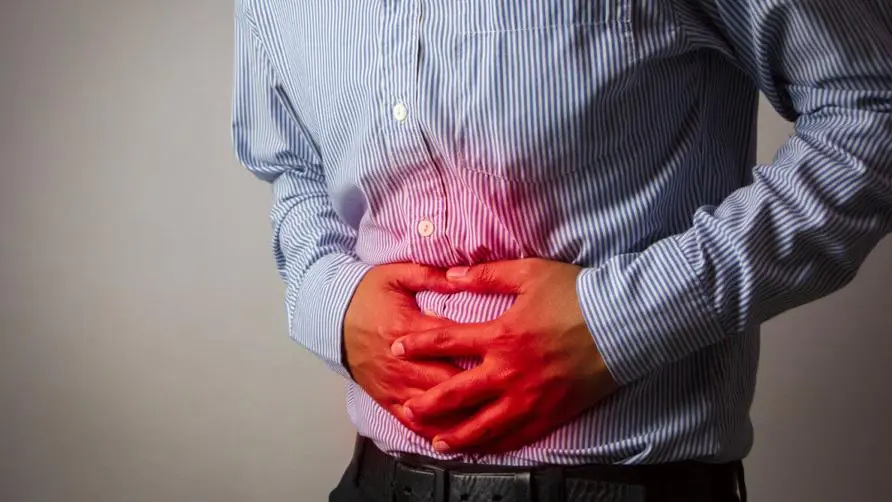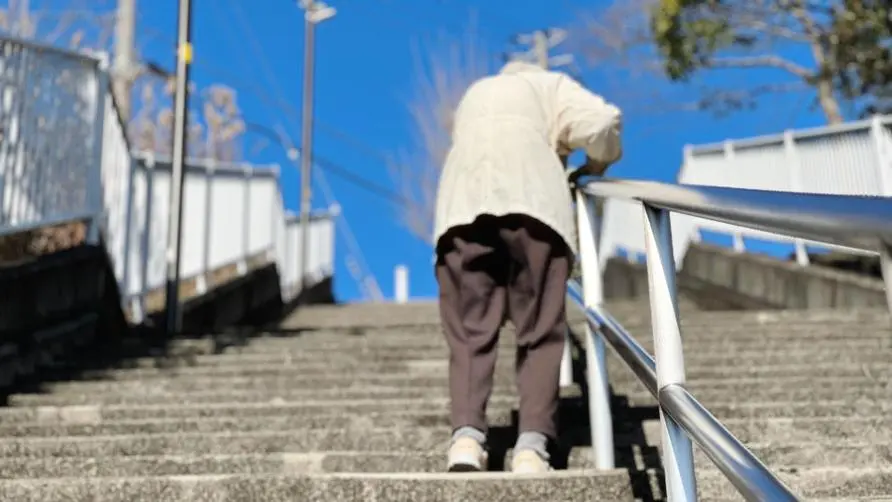He went to the doctor for stomachache and the result was "myocardial infarction"! Doctors reveal "5 atypical symptoms" are most easily confused

He mistakenly thought it was acute gastritis due to abdominal pain and nausea, and sought medical treatment only to be shocked to learn that two arteries were completely blocked.
A 68-year-old man who worked as a temporary ironworker suffered from upper abdominal pain, nausea and vomiting. He thought it was acute gastritis. He took stomach medicine but had no relief. However, he was sent to the emergency room because of difficulty breathing and general weakness at work. When the patient was sent to the emergency room, he had difficulty breathing and rapid heartbeat. He was found to be in a state of hypotension and almost shock. An electrocardiogram and blood test were urgently arranged. It was determined that he had myocardial infarction and a cardiac catheterization was performed immediately.
Dr. Sun Deguang of the Department of Cardiovascular Medicine at the Cheng Ching Hospital Chung Kang Branch said that people who work hard have unstable lives and incomes. They rarely receive health check-ups and do not have stable control of their three chronic diseases. They never leave their mouths with cigarettes. Little do they know that two of the three coronary arteries in the heart have been completely blocked. , a severe stenosis, severe enough to cause myocardial infarction. Fortunately, with the cooperation of the cardiac medical and surgical team, precious life was saved.
Dr. Sun Deguang said that nearly 30% of patients with myocardial infarction present with “atypical” symptoms, especially the elderly who often mistake myocardial infarction for stomach pain, chest tightness, chest pain, asthma, muscle pain in the arms, etc., or just Patients who are simply tired and lose their lives due to delay in getting to the hospital urgently need the high alertness and professional knowledge of emergency department and cardiac surgeons to accurately diagnose their myocardial infarction.
The ejection index is so low that it can be life-threatening at any time! Medical “1 treatment” takes into account both patient health and economic burden
Dr. Sun Deguang said that of the patient’s three coronary arteries, two were completely blocked and one was severely stenotic. The left main artery also showed severe stenosis. His cardiac ejection index (EF) was only 22% (normal is >50 %), showing that severe heart failure has occurred and is life-threatening at any time. In view of this, the medical team immediately provided ventilator support and inserted an aortic pump to help support the risk of heart failure.
How to save the patient’s life in danger and bring the greatest long-term medical benefits to the patient? Family members present even asked if treatment could be done by “injections and medicine” to reduce the financial burden. Dr. Sun Deguang considered the patient’s financial burden, short, medium and long-term treatment effects, and prognosis considerations, and finally decided not to perform cardiac catheter stent placement surgery. He urgently consulted the cardiac surgery department to perform “cardiac vascular bypass surgery” for the patient, which would place the least financial burden on the patient. , and maximize the long-term benefits of treatment. The patient was successfully discharged from the hospital ten days after the surgery.
Three highs, smoking, and not exercising are the most damaging to your “heart”! 6 high-risk groups to avoid abusing 2 substances
Dr. Sun Deguang explained that people with three high chronic diseases: smoking, lack of exercise, obesity, high blood sugar, high blood pressure, and high blood lipids, especially those at high risk of myocardial infarction. We call on the above-mentioned groups to abide by the principles of a balanced diet, more exercise and a normal daily routine, and avoid excessive drinking and stay away from smoking addiction. It is understood that excessive abuse of tobacco and alcohol is the two major risk factors for cardiovascular disease.
Finally, Dr. Sun Deguang pointed out that different patients have different story backgrounds, and some may be in desperate situations because they cannot afford high medical expenses. Although the top priority of medical care is to save people, sometimes it is also necessary to consider social and economic factors for patients and integrate the medical team to make the most appropriate medical decisions, while also taking into account saving the patient’s life and alleviating his life burden.
Further reading:





